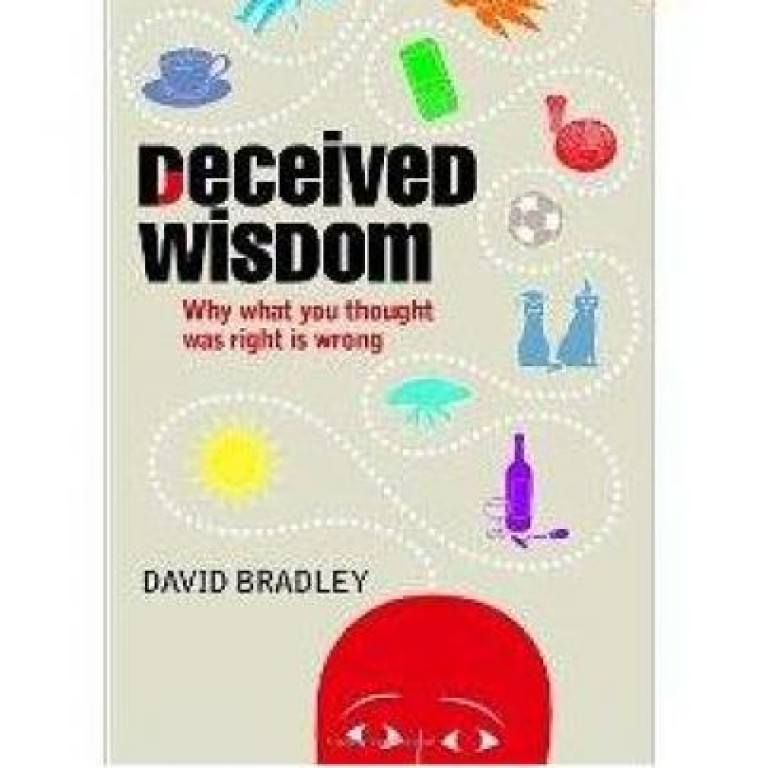
E- and audiobook reviews: non-fiction
by David Bradley
Elliott and Thompson
(e-book)
is the type of book know-it-alls love to have so they can tell other know-it-alls, "Actually, it's like this …" Science writer David Bradley tackles fallacies and misconceptions with humour. Should you feed a cold and starve a fever? What is the best hangover remedy and why? How sound is the five-second rule for food dropped on the floor? Are cats generally more intelligent than dogs? Simple explanations conveyed succinctly mean your brain is not taxed unduly, and links at the bottom of each debunked or verified fact direct readers to further reading. could have been packaged better with similar subjects grouped together in chapters, although some readers will enjoy its randomness. They will find out what to say to a supposed wine connoisseur who insists on uncorking a bottle of red wine to allow it to "breathe". They may also like the explanation for "swimming-pool fingers": our digits apparently go "pruney" because the brain is telling them to form wrinkles so they have a better grip on wet surfaces.
by Oliver Sacks
(read by Dan Woren)
Random House Audio
(audiobook)
You will come away from this book aware that more people than admit it see or hear things that are not there. As Oliver Sacks shows, these hallucinations can include smells, and come and go. Some "sufferers" even look forward to them, such as Gertie C, a post-encephalitic Parkinson's patient Sacks wrote about in . Assured there was nothing wrong with the sexual hallucinations she began having after taking the drug L-Dopa, she enjoyed her "gentleman visitor" every day. Sacks describes, based on non-psychotic cases, patients whose brains have produced phantasms or voices telling them what to do (or not do). He posits that an early visual system may be behind images seen by patients who do not draw from their own sighted histories; this explains Charles Bonnet syndrome, which causes a reaction in the brains of the visually impaired to the loss of eyesight. Sacks also tells of his own hallucinations - from experiments with LSD and other drugs - which saw him preparing lunch for people who weren't there.

